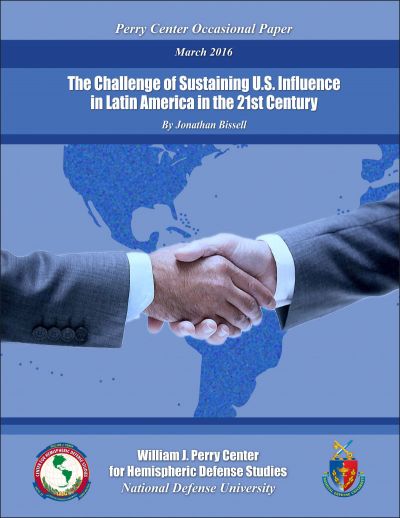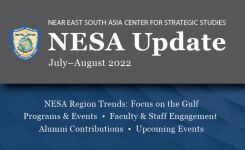- William J. Perry Center for Hemispheric Defense...
- The Challenge of Sustaining US Influence in Lat...
The Challenge of Sustaining US Influence in Latin America in the 21st Century

Influential international affairs author Robert Kaplan postulated during a recent speech in Washington DC that the contemporary effects of advanced technology and other factors of globalization does not change the world’s geography, "but has intensified it." Kaplan also noted the aftershocks of the war in Iraq have negatively affected the United States' (US) ability to lead the world. A quick glance across an ominous geopolitical landscape reveals a rapidly-expanding China and its aggressive behavior in Asian waters, the swift and surprising rise of the Islamic State of Iraq and the Levant (ISIL) in Syria and Iraq, and the possibility of Iran developing nuclear weapons and the scenarios of nuclear proliferation that may come from a recently signed international agreement concerning it. This agreement relieves Iran of stringent economic sanctions. Other global concerns include the debacle of Grecian debt and Greece’s poor economic and fiscal policies which threaten the viability and future of the entire Eurozone, the return of diplomatic and military tensions with Russia due to its aggression in Georgia, Crimea, and Ukraine, and the inefficiencies in governance in sub-Saharan Africa, manifested in massive inequality, poor health and sanitation practices, and widespread corruption problems.


